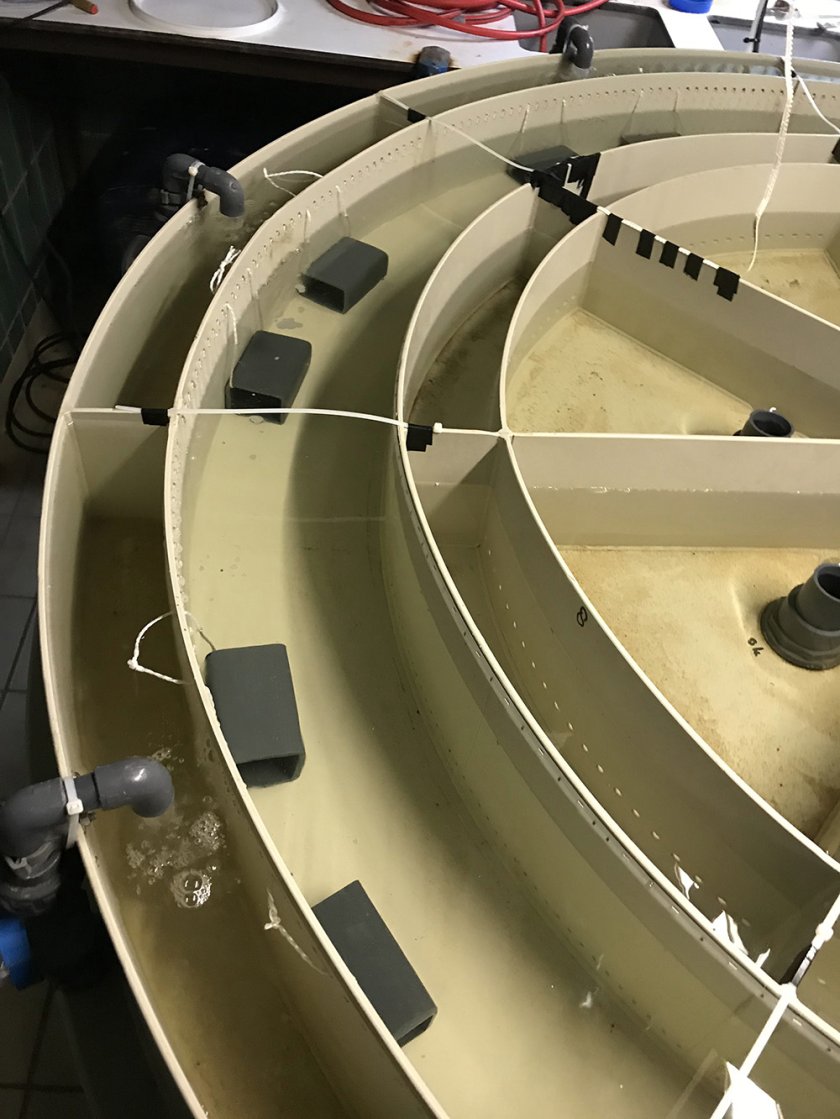
category_news
A warmer Wadden Sea: tough choices for fish
For cold-blooded species, temperature determines their activity and metabolism: if it is warm enough, they become active and if it gets too cold, they remain still. But apart from temperature, fish respond to more environmental factors: for example, the presence of shelter to hide from predators. To find out what matters most to the five-spined gannet, PhD student Bass Dye conducted a special experiment.
Fish species often have a particular temperature at which they thrive best. Climate change and warmer seawater therefore have a direct effect on fish. Researcher Dye now investigated exactly when the five-bearded rockling (Ciliata Mustela), a common fish species in the Wadden Sea, leaves habitats with shelters when sea water temperatures change.
Circular experiment
Dye released fish into a circular water tank where they could choose between different temperatures ranging between 10 and 22 degrees. At each temperature, they could also hide in a PVC tube. Without interventions, the fish chose the part where it was 13 degrees. After the PVC tube was removed from this section, the fish moved to a neighbouring section with a different temperature where they could hide in a tube. There too, the tube was then removed. The rockling moved on to even warmer water, hiding in the PVC pipe in the next section.
Choices with consequences
The fish were happy with temperatures well beyond their preferred 13 degrees as long as they had a hiding place. But there was a limit to this: at temperatures of 19 degrees and above, they eventually stopped choosing the shelter of a PVC pipe and instead sought cooler water.

This experiment shows that when the Wadden Sea warms up by a few degrees, the five-spined gannet will gladly migrate to cooler waters, except if the distribution of shelters forces them to stay in the Wadden Sea. But therein also lies a danger, however at higher water temperatures they are likely much less able to grow, reproduce and survive. Fish that take the warmer water for granted and do not leave the Wadden Sea grow less well, may be in worse condition or they may have fewer offspring.
First step in larger behavioural study
In this study, researcher Dye now shows what fish may do at warmer temperatures. But to properly understand how climate change affects fish functioning, this study needs to be combined with other studies on the life history, condition and reproduction of Wadden Sea fish.